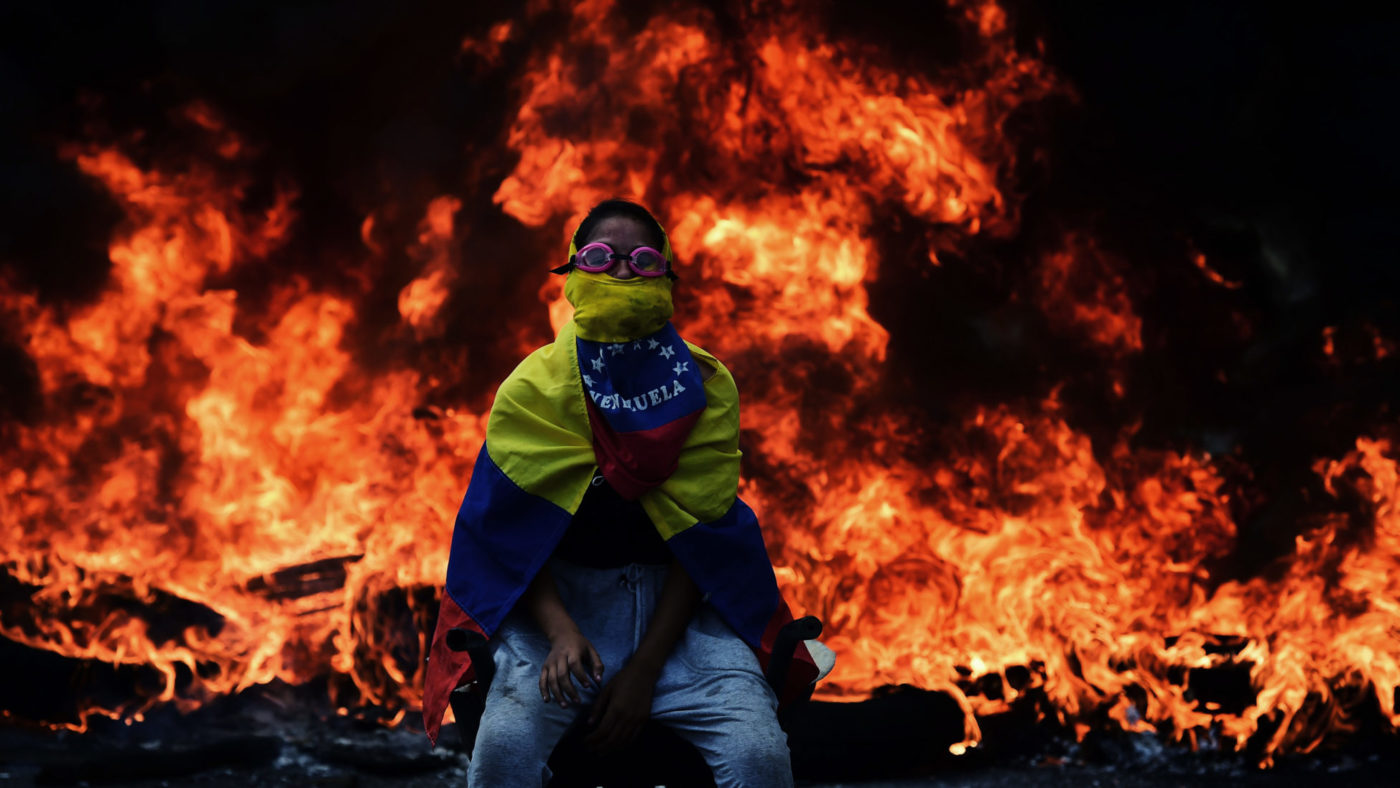The attempt to re-install democracy in Venezuela by backing National Assembly President Juan Guaido is not going to plan. The Maduro regime remains in place, despite the huge street protests mounted against it.
There are several reasons for the resilience. One is clearly the regime’s continued access to sufficient funds to pay forces that defend it — the military, criminal gangs, and Cuba. It has taken longer than anticipated to close off the cash they get from oil sales, as India, China and other countries have continued to purchase. The oil sanctions are, however, biting harder every month, and when the US expands its sanctions to cover non-US entities which trade in Venezuelan oil, we may expect Maduro’s oil revenues to decline even more sharply.
Gold has been another source of revenue for Maduro. Although some still comes from environment-destroying illegal mining in the Amazonian forests, the regime has been living off the remains of Venezuelan gold reserves. The fact that Maduro had to send his henchmen to illegally remove the remaining reserves from the Central Bank during a weekend shows just how little cash he has left.
Second, the regime’s leaders and associates still think they can continue looting the country with little redress. Only the US is making serious efforts to prevent this, sanctioning almost 100 Chavistas, revoking the visas of over 250 and recouping billions of stolen funds through the courts.
Third, and most importantly, Cuban control of the intelligence apparatus means that any military officer exhibiting dissent is swiftly imprisoned and tortured to reveal details of allies. It is just too dangerous for military officers to rebel.
For the Chavista regime to fall, much firmer action needs to be taken to address each of these three reasons for regime survival. British policy to date seems to be based on words more than deeds – eloquent though some of those words have been — and hoping that all will turn out well. Our one significant contribution has been to deny Maduro the $1.2bn of Venezuelan gold that is sitting in the Bank of England. Beyond that our approach has consisted of press releases and tweets supporting Guaido. This is welcome, but the Maduro regime will not be removed by Twitter. More substantive action is required and Britain needs to do its bit. The Foreign Secretary and the Minister of State have been at pains to underline their support for democracy in Venezuela. Time, therefore for stronger action.
On April 9 I spoke in a debate in the Commons on sanctions and the UK’s future relationship with the EU sanctions regime. I highlighted that we do not need to remain tied to the EU’s quite weak approach. We can sanction many more corrupt individuals, and more significantly, really go after the Chavista money in London through money-laundering legislation. These laws have never been used to track down the corrupt Chavista cash that washes around the British financial system. Extraordinarily, Jeremy Corbyn’s friend Rocio Maneiro, Maduro’s Ambassador to London, has been allowed to remain in place despite an outstanding warrant for her arrest for taking a $4m bribe.
We need to join the US in imposing strong economic sanctions that help cut off the regime’s access to cash. 2018 sanctions legislation permits Ministers to impose sanctions in order to” provide accountability for or be a deterrent to gross violations of human right”, and to “promote respect for democracy, the rule of law and good governance,” both of which reasons apply precisely to the Venezuelan case.
Most importantly we need to apply enough economic pressure on Cuba to get them to withdraw their forces from Venezuela. This is the step that will most likely lead to fall of the regime. The Government’s stance towards Cuba has not been inspiring thus far. The recent royal visit to Cuba provided useful propaganda photo-ops for a decaying, unreformed Communist dictatorship at a time when it is playing the key role in propping up Maduro. Amazingly, Prince Charles was photographed both smiling in front of the secret police headquarters and together with the Cuban General in charge of Venezuelan repression.
We need to apply enough economic pressure to Cuba to force it out of Venezuela. We should ask them to withdraw their forces and when they do not comply we should join with the US in helping the National Assembly prevent the unlawful supply of Venezuelan oil to Cuba – this will require UK sanctions, targeted on insurance of shipping. Britain’s pre-eminent role in the insurance market makes our participation in the sanctions effort particularly important.
Should depriving the Cuban regime of subsidised oil — accounting for 12 per cent of its GDP — not have the appropriate effect, we should join with other countries to reduce the number of tourists visiting Cuba – tourism being the only bright spot in their failing economy, accounting for 10 per cent of GDP.
The UN estimates that another 1.9m refugees will leave Venezuela this year. Stronger action now makes overwhelming sense, otherwise the crisis will drag on and more people will die of malnourishment or an absence of medical care.
CapX depends on the generosity of its readers. If you value what we do, please consider making a donation.


